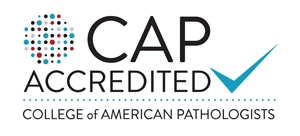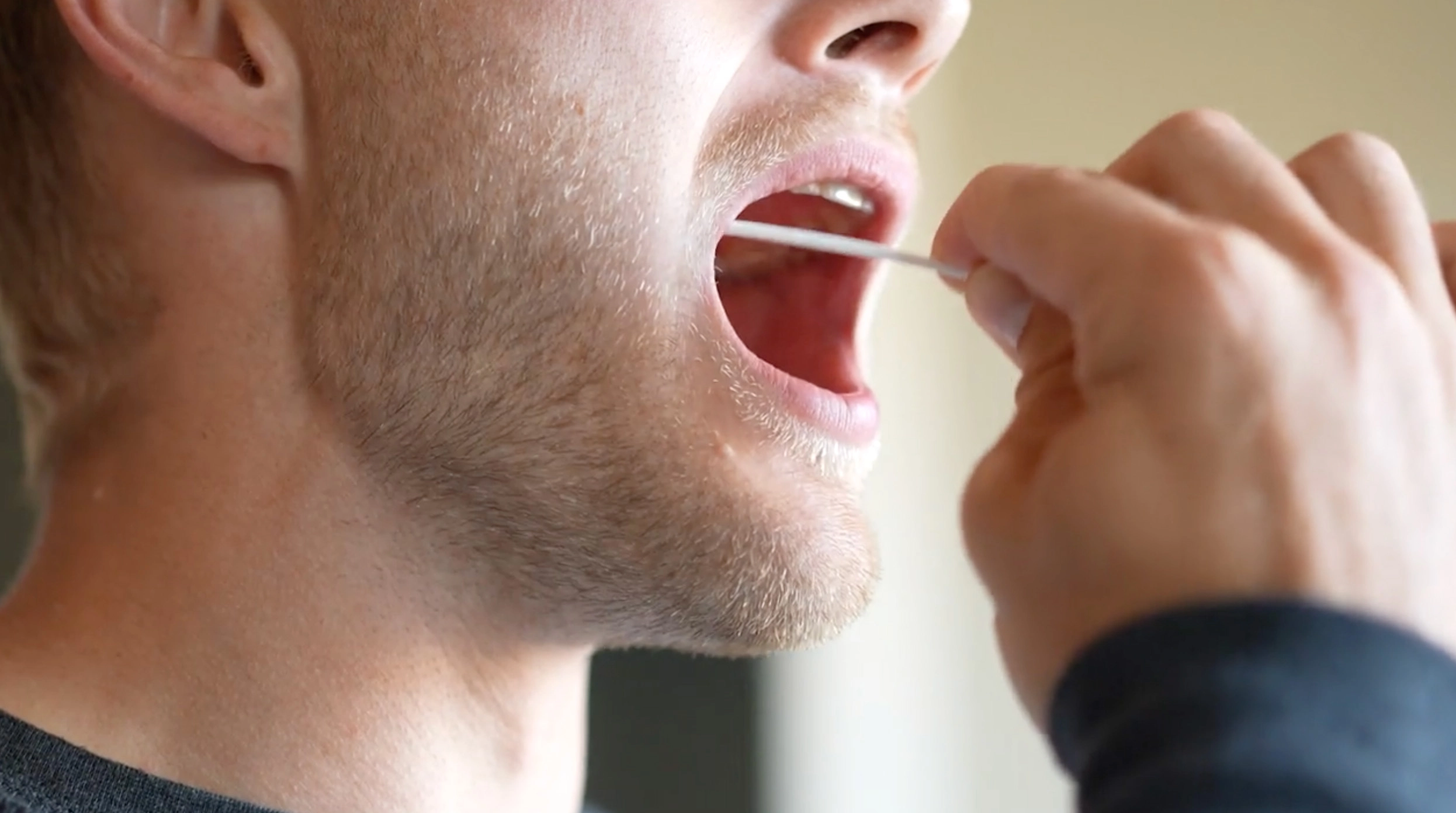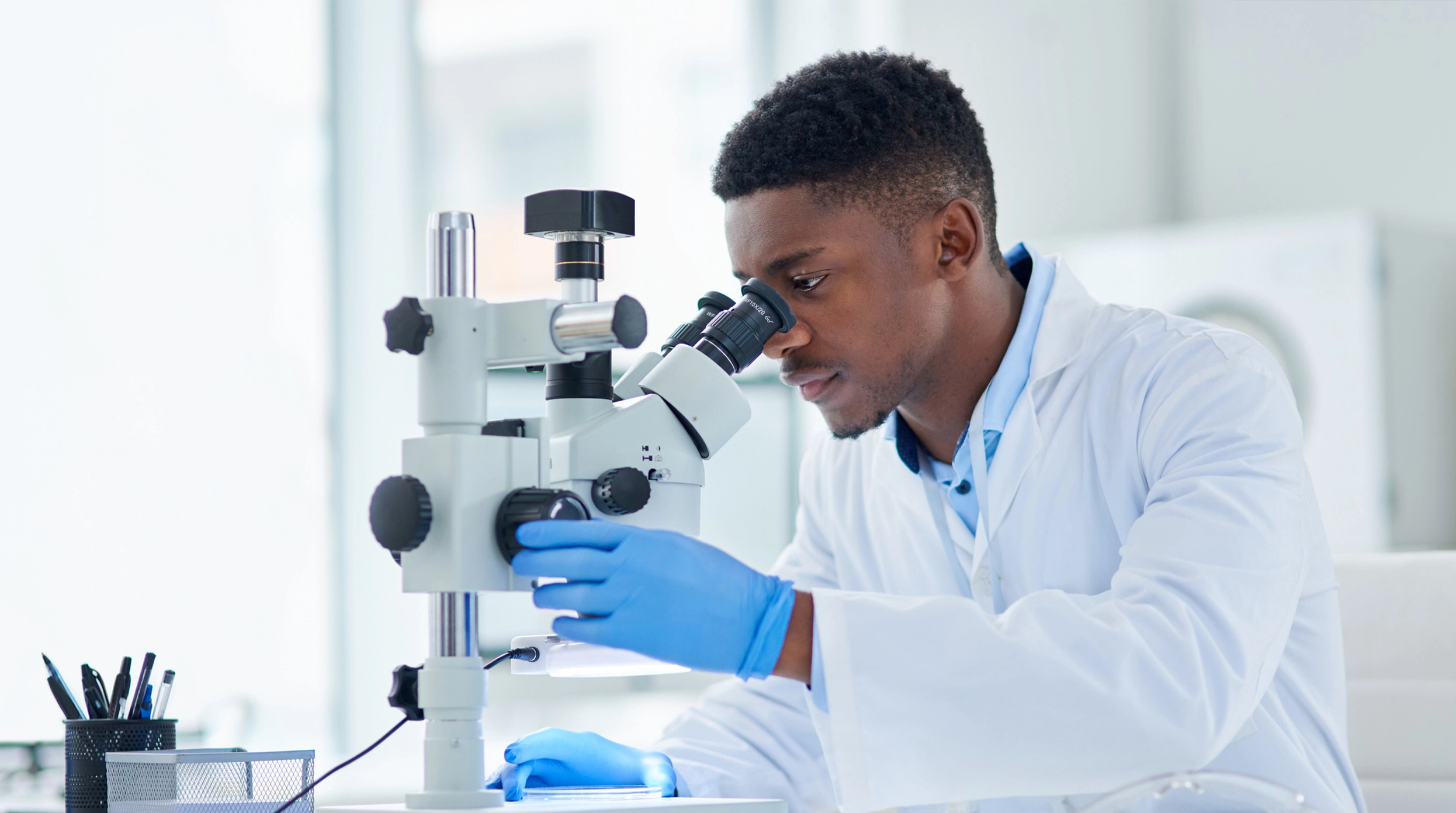When a possible father is not available for paternity testing, one or both of his parents can participate instead. DDC’s Grandparent DNA Test can confirm a biological relationship between a child and their grandparent(s), providing the answers and peace of mind that you need. Call for a free consultation – our knowledgeable customer support representatives are ready to help!
Grandparent DNA Test
Discreet
Convenient
Over 99.99% Accurate
Affordable

DNA Testing Options For Grandparents
DDC offers two different types of grandparent DNA tests: legal tests and at-home tests.
Legal Grandparent DNA Tests
This test offers court-admissible results. To ensure the proper chain of custody is followed, all tested parties are required to have their DNA samples collected at a certified facility like DNA Diagnostics Center, a hospital, medical office, or health department. The sample collector is also required to verify the identities of all tested parties through either government ID or other legal documents.
At-Home Grandparent DNA Tests
This test does not offer court-admissible results. If you are seeking a grandparent DNA test solely for peace of mind, you may want to consider an at-home test. At-home relationship testing is just as accurate; the DDC lab follows the same strict processes that legal tests require, the only difference being that sample collection occurs at home, unwitnessed.
DNA Testing With Reputable Accreditations












Accreditations apply to legal DNA tests under scope.
Reliable Grandparent DNA Testing Through DDC
Results in 5 Business Days
Once all samples arrive at the lab.
PhD-Reviewed Results
Our in-house experts ensure accuracy.
Team Support
Stay informed every step of the way.
Over 30 Years of Experience in DNA Relationship Testing

AABB-Accredited
First and only test accredited by the Association for the Advancement of Blood & Biotherapies.

American Pregnancy Association
The only test endorsed by the American Pregnancy Association.

30 Years
Over 30 years of experience in DNA relationship testing.
How the Grandparent Test Process Works
We make the grandparent DNA testing process easy by offering flexible options that meet your needs. Our customer support representatives are available to help you every step of the way.


Give Us a Call
To start the grandparent DNA testing process, call our experts for a no-obligation consultation. Our representatives can help you navigate your unique situation and determine which test (legal or at-home) best suits your needs, and which parties can and should be tested – one grandparent or both grandparents. In some cases, we may also recommend testing the known parent, which is typically the mother, although this is optional.


Collect the DNA Sample(s)
If you opt for an at-home grandparent DNA test, we’ll send a complete kit right to your doorstep in discreet packaging. Simply collect cheek swabs (or other allowable sample types) from both tested parties, and return the samples in the prepaid mailer.
If you order a legal grandparent DNA test, both tested parties can easily provide their DNA sample in-person at one of our 5000+ collection locations worldwide. Multiple appointments can be set up in different locations if necessary.


Your Test is Carefully Processed
Our laboratory technicians carefully handle and prepare your DNA samples for processing. Every DDC relationship test that utilizes buccal (cheek) swab samples is run two separate times by independent teams. The results of your grandparent DNA test are then reviewed by our in-house team of PhDs and your report is prepared.


Receive Your Results Online
Once the grandparent DNA testing process is complete, we’ll send you an email that will allow you to log in to our secure website and view your results. Your test results are completely confidential, and your private genetic information is never shared with or sold to outside parties. See our privacy policy here.



We Are Your Grandparent DNA Experts
For decades, customers have trusted us with over 20 million DNA tests. DDC performs thousands of relationship tests each year, including:
FAQs About Grandparent DNA Tests
Below are some frequently asked questions about grandparent DNA tests.
Can You Do a Grandparent DNA Test with Just One Grandparent?
Yes, grandparent DNA testing is possible even when using samples from just one paternal grandparent and the child; but the results may be less conclusive. If possible, we always recommend both paternal grandparents provide samples. We also recommend including the mother in the testing, if possible.
Can a Grandparent DNA Test Be Done Without the Mother?
Yes, a grandparent test can be done without the mother, although we highly recommend that the mother provides a DNA sample as well. Her participation helps the analysts to better identify the child’s paternal DNA and it can also help to strengthen the overall probability of relationship percentage.
How Accurate Is a Grandparent DNA Test Compared to a Paternity Test?
A grandparent DNA test is just as accurate as a paternity test, but the conclusiveness of the results can have more variation. For example, the probability of a relationship between a father and child is almost always 99.9% or higher – or 0%, but for a single-grandparent test, the probability of a relationship might be 92%, which is still considered a conclusive result.
To strengthen the conclusiveness of test results, we recommend that both paternal grandparents test (if possible) and the child’s mother participate in testing. When both paternal grandparents and the mother participate in testing, probability of paternity is nearly always 99.9% or higher.
Can a Grandparent DNA Test Be Used for Legal Reasons?
Yes, a grandparent DNA test can be used for legal reasons as long as a chain-of-custody procedure has been set up and followed. Results from a legal grandparent DNA test are court-admissible and can be used for legal reasons such as Social Security, inheritance rights, custody, and more. Results for an at-home grandparent DNA test cannot be used in court.
Does the Mother Need to Consent to a Grandparent DNA Test?
The responsibility is on the tested parties to ensure all parties and/or legal guardians agree to testing. See Section 4 (n) of DDC Terms and Conditions.
How Do I Understand Results for a Grandparent DNA Test?
The probability of relationship (PRI) is given as a percentage in your grandparent DNA test results report. You can interpret your results based on the following:
- 90% or higher: the relationship is supported by DNA testing
- 9% – 89%: inconclusive result, and additional parties need to be tested
- Below 9%: the relationship is not supported by DNA testing
If a probability of relationship (PRI) of 93% is given for a grandparent test, the result could be understood as: “There is a 93% probability that the persons tested share a grandparent/grandchild relationship.”
DNA Diagnostics Center Reviews
Give Us a Call
Call our relationship testing experts today for your free, confidential consultation!


